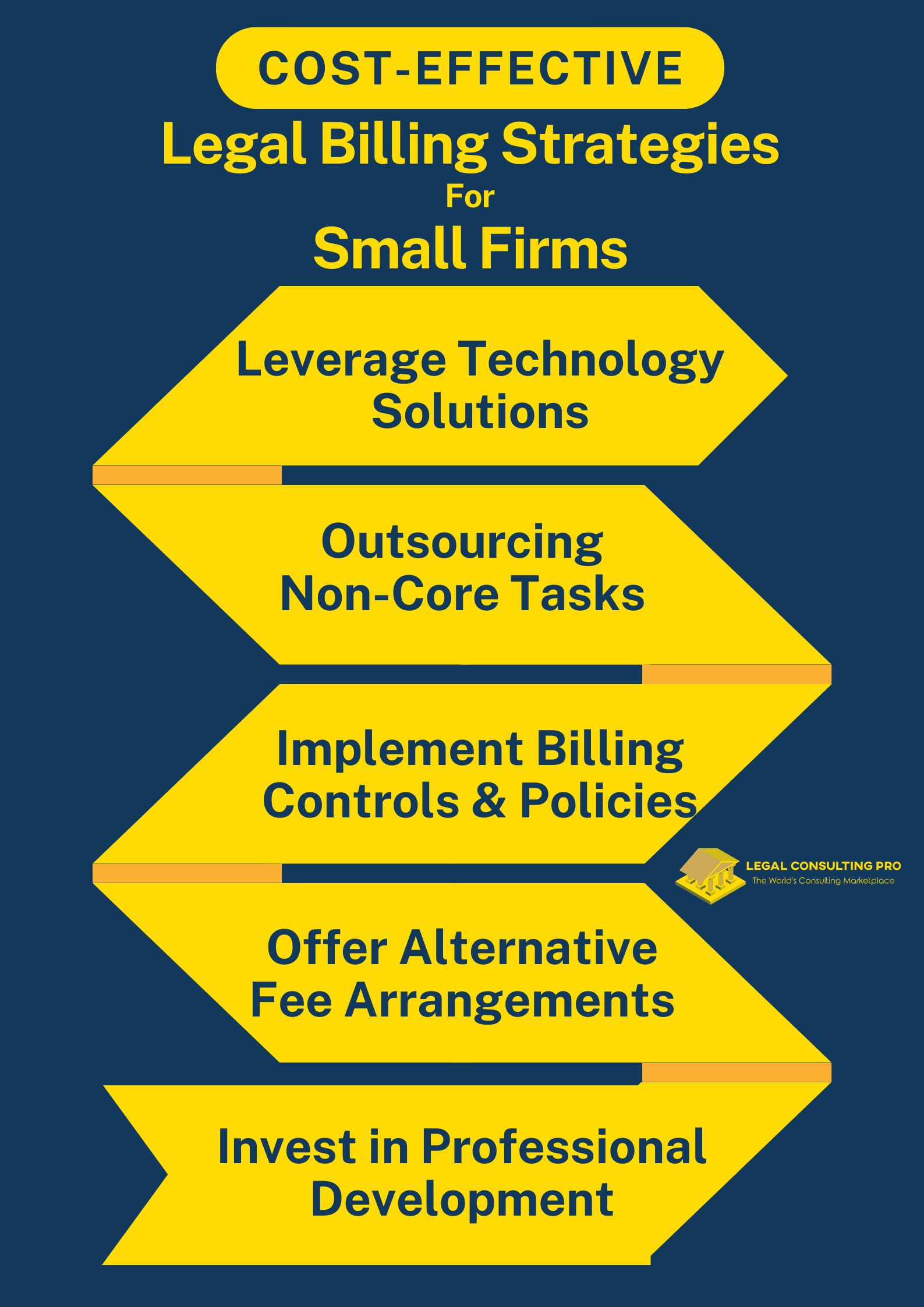In the legal consulting industry, billing practices are foundational to a law firm’s success, regardless of its scale. Efficient billing processes are especially vital for small law firms, as they play a pivotal role in managing expenses, maximizing revenue, and ensuring client satisfaction. In this article, we delve into cost-effective strategies tailored to small law firms, aimed at optimizing their legal billing practices. These strategies are designed to enhance profitability and cultivate long-term success by leveraging efficient billing processes. By implementing these strategies, small law firms can streamline their operations, improve financial management, and ultimately deliver greater value to their clients.
Understanding Legal Billing for Small Law Firms
Legal billing for small law firms encompasses various aspects, including billing methods, fee structures, time tracking, invoice generation, and client communication. Small firms must strike a balance between accurately capturing billable hours and expenses while ensuring that billing practices are transparent, fair, and aligned with client expectations.
Choosing the Right Billing Method:
Small law firms have several billing methods to consider, each with its advantages and considerations. Hourly billing, flat fees, contingency fees, and value-based billing are among the most common options. While hourly billing offers transparency, flat fees provide predictability, contingency fees align incentives with clients, and value-based billing focuses on outcomes. Small firms should assess their practice areas, client preferences, and the nature of legal consulting matters to determine the most suitable billing method for each case.
Implementing Efficient Time Tracking Systems:
Accurate time tracking is essential for small law firms to capture billable hours effectively and ensure fair and transparent billing. Utilizing time-tracking software or apps can streamline this process, allowing attorneys and staff to record their time spent on various tasks promptly. Additionally, implementing standardized timekeeping procedures and providing training to personnel can improve consistency and accuracy in time-tracking practices.
Streamlining Invoice Generation:
Small law firms can enhance efficiency in invoice generation by leveraging billing software or practice management platforms. These tools automate the invoicing process, allowing firms to create and send invoices quickly and accurately. Customizable invoice templates, automated reminders for overdue payments, and online payment options can further streamline the billing process and improve cash flow for small firms.
Enhancing Client Communication:
Effective communication with clients is paramount for small law firms to establish trust, manage expectations, and address billing inquiries promptly. Clear and transparent communication regarding billing practices, fee structures, and cost estimates is essential to avoid misunderstandings and disputes. Providing clients with regular updates on billing status, discussing fee agreements upfront, and addressing any concerns or questions promptly can foster positive client relationships and enhance satisfaction.
Cost-Effective Strategies for Small Law Firms:
Small law firms can implement several cost-effective strategies to optimize their legal billing processes and maximize profitability:
Leverage Technology Solutions:
Legal billing software tailored for small firms streamlines essential processes like time tracking, invoice generation, and expense management. By automating these tasks, it reduces administrative burdens and minimizes billing errors. Cloud-based solutions further enhance flexibility and scalability, enabling access to critical functions from any location. Moreover, these platforms facilitate transparent client communication, improving efficiency and client satisfaction. The centralization of data ensures accuracy and consistency across billing processes, contributing to increased profitability and firm success. Ultimately, investing in legal billing software is a cost-effective strategy for small law firms to optimize their operations and provide exceptional service to their clients.
Outsourcing Non-Core Tasks:
Outsourcing non-core tasks such as bookkeeping, accounts receivable management, and administrative support is a smart strategy for small law firms. It reduces overhead costs and frees up attorneys’ time for billable work. Partnering with external service providers or virtual assistants grants access to specialized expertise without the commitment of hiring full-time staff. This approach enhances flexibility and efficiency, allowing firms to scale services as needed. By leveraging outsourcing, small firms optimize resources, improve productivity, and focus on delivering high-quality legal consulting services to clients, ultimately enhancing their competitiveness and profitability in the legal consulting market.
Implement Billing Controls and Policies:
Establishing billing controls and policies is critical for small law firms to maintain integrity and financial stability. Clear guidelines for timekeeping, billing rates, and expense reimbursement prevent discrepancies and unauthorized write-offs, minimizing revenue loss. Regular audits and reviews ensure compliance with ethical and regulatory standards while identifying areas for improvement. By implementing robust billing controls, firms bolster transparency and accuracy in billing practices, enhancing client trust and satisfaction. This proactive approach not only safeguards the firm’s financial interests but also fosters a reputation for reliability and professionalism in the legal consulting industry, ultimately contributing to long-term success and growth.
Offer Alternative Fee Arrangements:
In addition to traditional billing methods, small law firms can explore alternative fee arrangements to accommodate clients’ budgetary constraints and preferences effectively. Hybrid fee structures, combining elements of hourly rates and flat fees, offer flexibility and transparency. Subscription-based services provide clients with ongoing legal consulting support for a fixed monthly or annual fee, promoting long-term client relationships. Fixed-fee packages for routine legal consulting matters ensure cost certainty for clients while allowing firms to maintain profitability. Moreover, offering flexible payment options, such as installment plans or discounted rates for bundled services, enhances accessibility and affordability, making legal consulting services more accessible to a broader range of clients.
Invest in Professional Development:
Continual professional development and training are essential for small law firms to remain current with industry trends, best practices, and regulatory changes affecting legal billing. Participation in seminars, webinars, and continuing education programs focused on billing ethics, practice management, and technology adoption equips firms with the necessary knowledge and skills to optimize billing processes. These initiatives enhance staff competency, improve efficiency, and ensure compliance with evolving standards. By investing in ongoing education, small firms can adapt to changes in the legal consulting landscape, deliver superior service to clients, and maintain a competitive edge in the market.

Conclusion:
In conclusion, legal billing is a critical aspect of small law firm management, with significant implications for profitability, client satisfaction, and overall success. By adopting cost-effective strategies tailored to their needs, small firms can streamline billing processes, enhance efficiency, and maximize revenue while delivering exceptional value to clients. With a proactive approach to legal billing and a commitment to continuous improvement, small law firms can position themselves for sustainable growth and long-term success in a competitive legal consulting landscape.
Similar blogs:
Understanding Legal Billing: An Essential Guide for Clients and Law Firms
Legal Billing and Budgeting: Best Practices for Efficient Financial Management







































